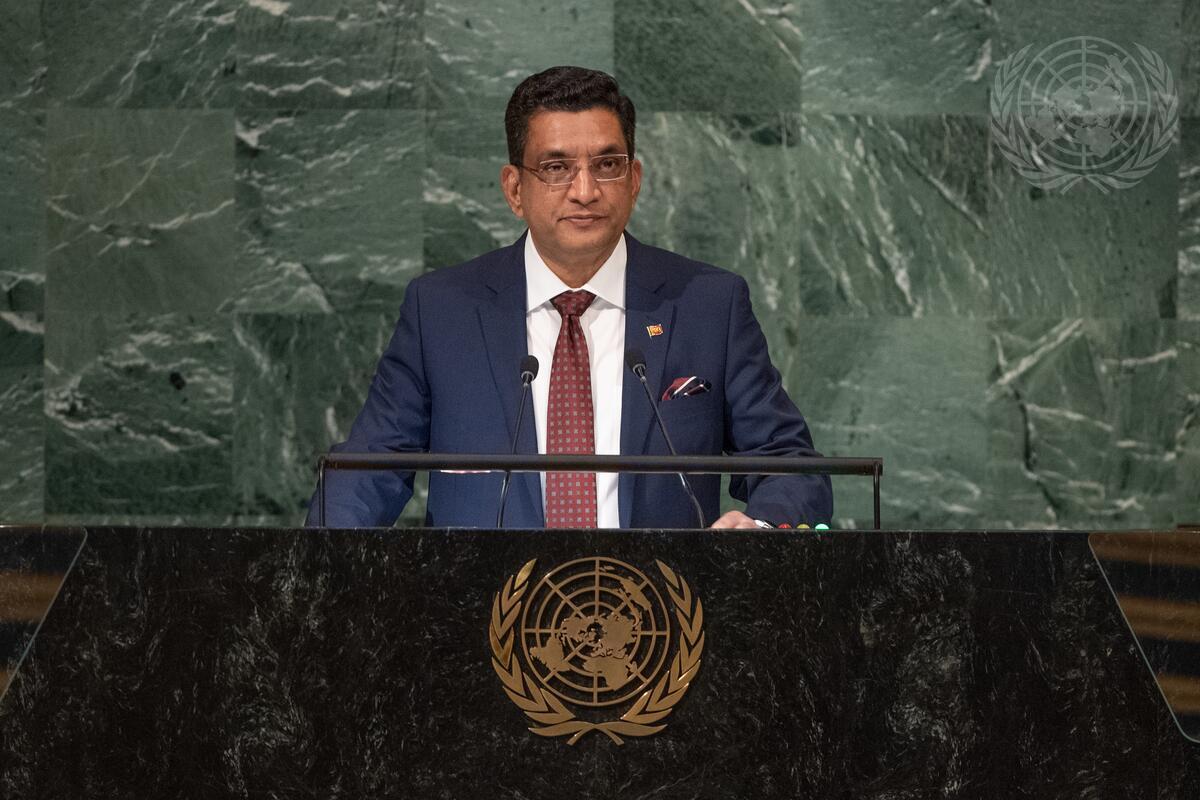 Sri Lanka told the UN General Assembly (UNGA) that freedom of expression cannot be abused and must be within the constitutional order.
Sri Lanka told the UN General Assembly (UNGA) that freedom of expression cannot be abused and must be within the constitutional order.
Foreign Minister Ali Sabry told the UNGA at the ongoing 77th Session that Sri Lanka unconditionally recognize the fact that one has a fundamental right to
the freedom of expression, which is treated as being sacrosanct.
“However, it must also be appreciated that, this freedom must be within the constitutional order, and must be exercised having regard to one’s fundamental duty to express oneself within the confines of the law,” the Minister added.
The Minister said that Sri Lanka remains cognizant of and acutely sensitive to the events that have taken place in the recent past.
“The Government is extremely sensitive to the socio-economic hardships faced by our people. We are pleased to have reached a staff level understanding with the IMF. We have put in place measures to protect the vulnerable segments of society and will endeavor to ensure that these economic reforms will have a minimum impact on their lives. Our institutions and society have demonstrated remarkable resilience in the face of very difficult circumstances,” he said.
In his speech the Minister also noted that Sri Lanka was a victim of terrorism for several decades.
He said that terrorists’ choice of targets, methods of financing and radicalization as well as the use of new technologies as weapons has been constantly evolving.
“Legislative measures and law enforcement mechanisms must be put in place to counter radical ideologies leading to violent extremism and to curb the terrorists’ use and abuse of the internet and social media platforms. At the same time it is necessary to develop the critical thinking capacity of youth, strengthen community bonds, foster a sense of civic responsibility, and build community resilience to mitigate the effects and influences of violent extremist ideology leading to terrorism,” he added.
Highlighting Sri Lanka’s commitments to the targets of the Paris Agreement and its aim of reducing emissions to achieve carbon neutrality by 2050, he called on the world’s largest emitters of greenhouse gases to fulfil their commitments and assist developing nations in adaptation and mitigation measures. (Colombo Gazette)


Post a Comment